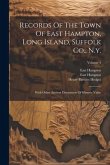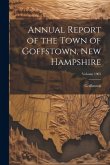As The Gritty Berkshires makes clear, Massachusetts' westernmost county is not just art museums, music festivals and beautiful scenery. For generations of working class families who have lived in the northern part of this county, their reality looks more like Rust Belt America. Maynard Seider, an activist sociologist who has taught and researched in the area for more than three decades, places the history of the North Berkshire region in the context of U.S. and global history. Through the use of oral histories, union archives, newspaper accounts and participant observation, the author focuses on the 1,000 men who built the nation's longest railroad tunnel, the thousands of men and women who worked in its textile mills and electronics factories and who struck, built worker co-ops, and community coalitions to improve their daily lives. In this history, we learn how the Berkshires offer insight into so many crucial aspects of the American experience. Moving from the early 1800s to the present, Seider weaves a narrative that details the area's vibrant immigrant history, slavery's role in its textile industry, the battle for national unions and the ideological struggles with corporate elites over who best speaks for the community. Enriched by dozens of photographs, these stories focus on the voices of ordinary people as they often do extraordinary things. Seider concludes his book by considering the question of "What's next?" through a case study of the Massachusetts Museum of Contemporary Art (MASS MoCA). These brick buildings which housed generations of blue and white collar workers until 1986 now attract tourists to the country's largest contemporary art collection. Yet the unanswered question remains, can a tourist-service economy provide a meaningful and economically sustainable life for its residents? The Gritty Berkshires' last section deals with this question both nationally and locally, exploring diverse responses amidst the nation's growing inequality, militarism and cutbacks in social services.
Hinweis: Dieser Artikel kann nur an eine deutsche Lieferadresse ausgeliefert werden.
Hinweis: Dieser Artikel kann nur an eine deutsche Lieferadresse ausgeliefert werden.








